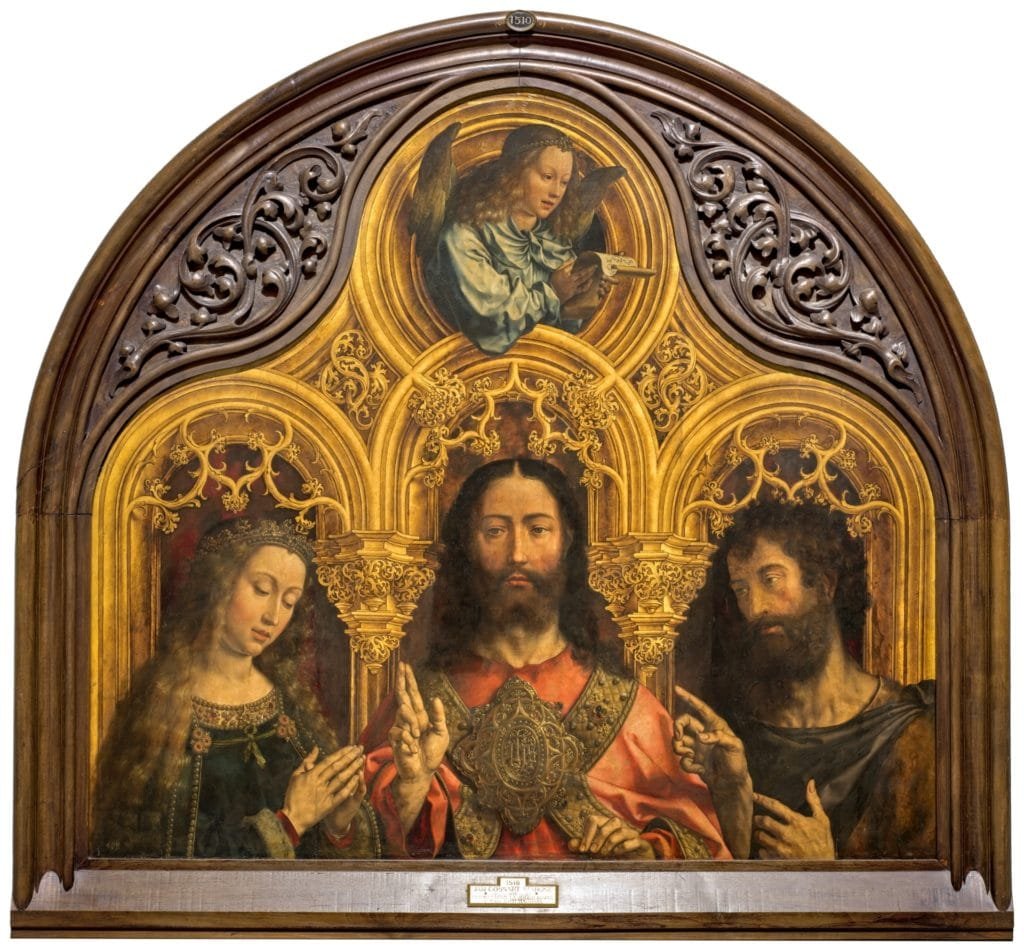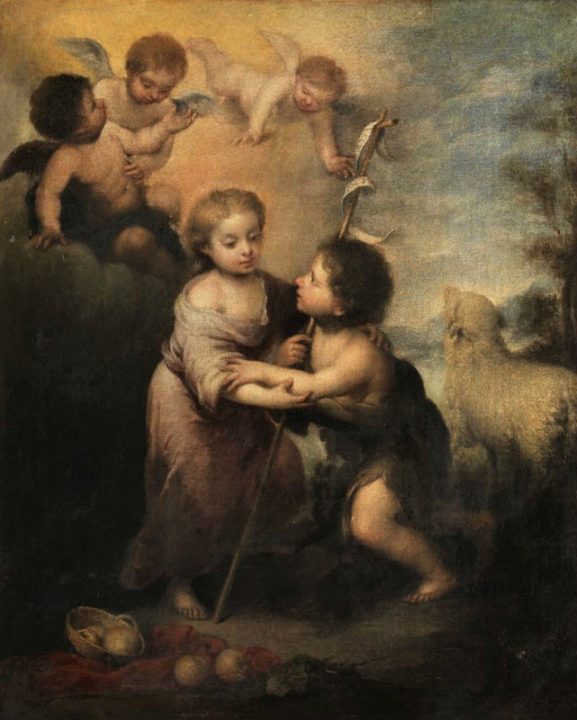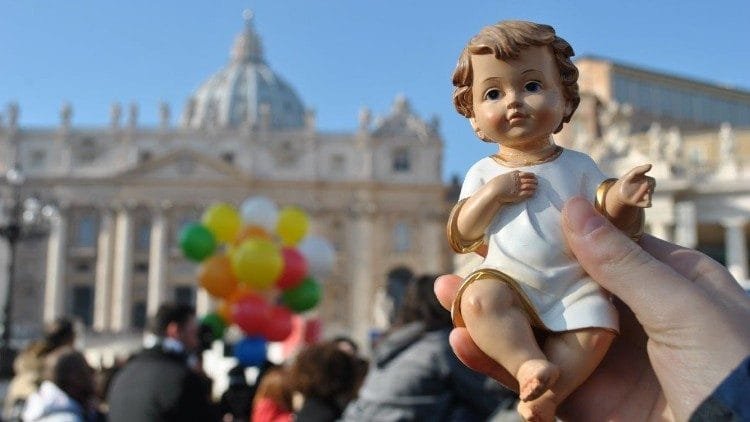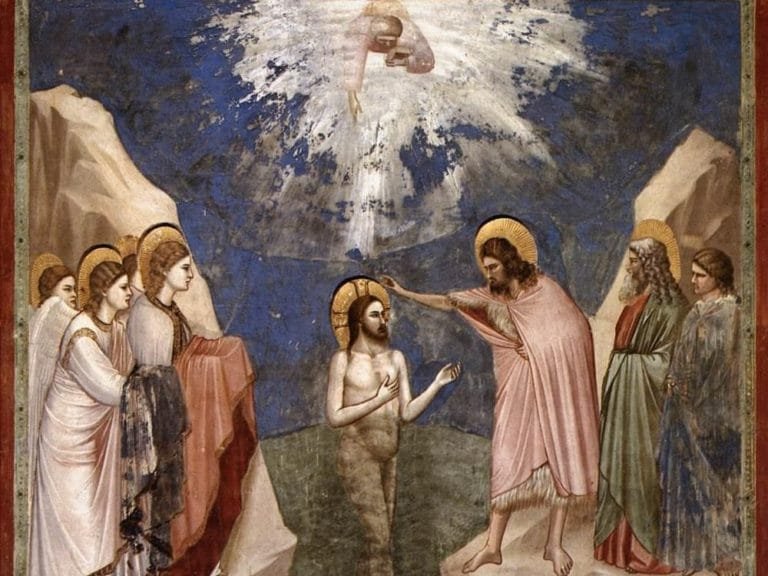GAUDETE SUNDAY 3RD SUNDAY OF ADVENT YEAR B GOSPEL, REFLECTION AND COMMENTARY. The testimony of John (Jn 1:6–8, 19–28).

GOSPEL OF GAUDETE SUNDAY 3RD SUNDAY OF ADVENT YEAR B
Jn 1:6–8, 19–28
A man named John was sent from God. He came for testimony, to testify to the light, so that all might believe through him. He was not the light, but came to testify to the light.
And this is the testimony of John. When the Jews from Jerusalem sent priests and Levites to him to ask him, “Who are you?” He admitted and did not deny it, but admitted, “I am not the Christ.” So they asked him, “What are you then? Are you Elijah?” And he said, “I am not.” “Are you the Prophet?” He answered, “No.” So they said to him, “Who are you, so we can give an answer to those who sent us? What do you have to say for yourself?” He said: “I am the voice of one crying out in the desert, ‘make straight the way of the Lord,’ as Isaiah the prophet said.” Some Pharisees were also sent. They asked him, “Why then do you baptize if you are not the Christ or Elijah or the Prophet?” John answered them, “I baptize with water; but there is one among you whom you do not recognize, the one who is coming after me, whose sandal strap I am not worthy to untie.” This happened in Bethany across the Jordan, where John was baptizing.
GOSPEL COMMENTARY OF THE NAVARRE BIBLE, COMMENTARY TO THE GOSPEL OF ST. JOHN (with permission)
- 19-34 This passage forms a unity, beginning and ending with reference to the Baptist’s “testimony”: it thereby emphasizes the mission given him by God to bear witness, by his life and preaching, to Jesus as the Messiah and Son of God.
- The Precursor exhorts people to do penance and he practises the austerity he preaches; he points Jesus out as the Lamb of God who takes away the sin of the world; and he proclaims him boldly in the face of the Jewish authorities.
- He is an example to us of the fortitude with which we should confess Christ: “All Christians by the example of their lives and the witness of the word, wherever they live, have an obligation to manifest the new man which they put on in Baptism” (Vatican II, Ad gentes, 11).
- 19-24 In this setting of intense expectation of the imminent coming of the Messiah, the Baptist is a personality with enormous prestige, as is shown by the fact that the Jewish authorities send qualified people (priests and Levites from Jerusalem) to ask him if he is the Messiah.
John’s great humility should be noted: he is quick to tell his questioners: “I am not the Christ”. He sees himself as someone insignificant compared with our Lord: “I am not worthy to untie the thong of his sandal” (v. 27). He places all his prestige at the service of his mission as Precursor of the Messiah, and, leaving himself completely to one side, he asserts that ‘he must increase, but I must decrease” (Jn 3:30). - 25-26 “Baptize’’: this originally meant to submerge in water, to bathe.
- For the Jews the rite of immersion meant legal purification of those who had contracted some impurity under the Law.
- Baptism was also used as a rite for the incorporation of Gentile proselytes into the Jewish people. In the Dead Sea scrolls there is mention of a baptism as a rite of initiation and purification into the Jewish Qumran community, which existed in our Lord’s time.
- John’s baptism laid marked stress on interior conversion.
- His words of exhortation and the person’s humble recognition of his sins prepared people to receive Christ’s grace: it was a very efficacious rite of penance, preparing the people fur the coming of the Messiah, and it fulfilled the prophecies that spoke precisely of a cleansing by water prior to the coming of the Kingdom of God in the messianic times (cf. Zech 13:1; Ezek 36:25; 37:2 3; Jer 4:1 4). John’s baptism, however, had no power to cleanse the soul of sins, as Christian Baptism does (cf. Mt 3:11; Mk 1:4).
- “One whom you do not know”: Jesus had not yet publicly revealed himself as Messiah and Son of God; although some people did know him as a man, St John the Baptist could assert that really they did not know him.
- 27 The Baptist declares Christ’s importance by comparing himself to a slave undoing the laces of his master’s sandals.
- If we want to approach Christ, whom John heralds, we need to imitate the Baptist. As St Augustine says: “He who imitates the humility of the Precursor will understand these words… John’s greatest merit, my brethren, is this act of humility” (In Ioann. Evang., 4, 7).
- 28 This is a reference to the town of Bethany which was situated on the eastern bank of the Jordan, across from Jericho — different from the Bethany where Lazarus and his family lived, near Jerusalem (cf. Jn 11:18).

VIDEO COMMENTARY
TOPIC: ARE YOU THE KIND OF PERSON WHO CAN FIND JOY IN ALL THE CIRCUMSTANCES OF YOUR LIFE?
The theme for this third Sunday of Advent is about joy. When we attend Mass, the first word uttered by the priest is “Rejoice!” That’s why this Sunday is called Gaudete (Rejoice and Be Glad) Sunday, from the pre-Vatican II Latin Mass.Our response to life’s events is a choice. We can always be happy. But it is our choice. Paul reminds us to pray without ceasing and to be grateful always. And we can only respond in that manner if we let the Holy Spirit continuously guide us. (1 Thessalonians 5:16-24)
FOR THE
3RD SUNDAY MASS PRAYERS AND READINGS YEAR B, CLICK HERE
3RD SUNDAY OF ADVENT YEAR B REFLECTION HOMILY, GAUDETE OR REJOICE SUNDAY, CLICK HERE, HERE, AND HERE.
SEE AS WELL: “ADVENT 3: GOD WANTS US TO BE HAPPY”

